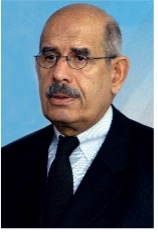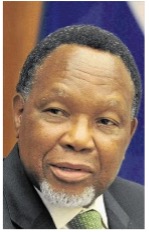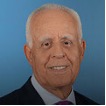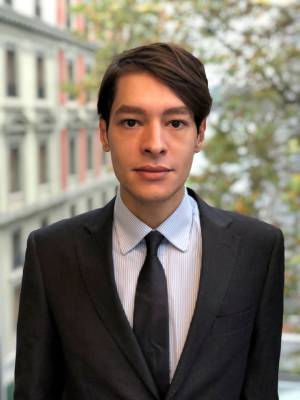Why Are African Leaders Calling for Drug Policy Reform? High-level Roundtable
The Policy Center for the New South, the Global Commission on Drug Policy and the West Africa Commission on Drugs are pleased to organize a high-level debate under the theme “Why Are African Leaders Calling for Drug Policy Reform” on Wednesday, February 9th 2022, starting 3:00 pm GMT+1.
This year marks the 50th anniversary of the declaration of the “war on drugs” by President Richard Nixon. Since then, law-enforcement responses are primarily used to counter the production, trafficking and consumption of illegal drugs. The international control regime based on the prohibition paradigm, and grounded in the three international drug conventions (1961, 1971 and 1988), consolidated national and regional fights against illegal drugs and supported the focus on drug elimination in national laws.
In parallel, and while the regime focused on its main objective and countries implemented international agreements, the “unintended consequences” –as they are referred to by the UN since 2008– of this same regime became more dire, to the point of slowing other global development objectives.
Public health efforts have been destabilised by current drug policies. For people who inject drugs’ (PWID), access to services has been impeded by the criminalisation of their behaviour. As a result, today, 17.8% of PWID live with HIV, 52.3% are infected with hepatitis C, and the prevalence of tuberculosis among this population is 9.1%. Another unintended consequence is that access to controlled essential medicines, including morphine for pain relief, is inadequate for 80% of the world’s population, affecting mainly low- and middle-income countries (the New South).
Drawing on the poorest populations for its workforce, the illegal drugs market creates enormous profits to criminal organizations, with an estimated annual turnover between USD 426 and 652 billion. The high market value of this illegal market and its attractiveness to people with few economic opportunities then feeds mass incarceration, with one in five of the eleven million prisoners worldwide incarcerated for a drug offense. The result is a complex situation that undermines, in turn, the achievement of just and fair societies as part of sustainable development.
Other issues include the inadequate collection of data directly related to the international drug control regime. In 2018, 269 million people were estimated to use drugs globally. Yet that figure represents only people who were arrested or sought treatment. It is therefore not currently possible to have disaggregated and effective data on problematic drug use. The use and conditions referred to as ‘problematic’ have the potential to undercut health, social integration, economic prosperity, and all other development indicators.
Within that perspective, this event will serve as a platform for experts to discuss common approaches to drug policies, appreciate current policies’ interactions with the rule of law, health, and the fight against organized crime, and to discuss pathways to address contemporary and emerging challenges related to drugs.
The objectives of this high-level debate are three-fold:
- To discuss drug policy in the New South and in Africa, and attract attention to its cross-cutting economic, social, and cultural challenges; and to reenergize the debate on drug policy control as the policies on the ground are taking diverging directions;
- To facilitate the exchange of experiences, lessons learned, and good practices between countries that have been reforming their policies in the last decade;
- To provide a space where emerging solutions for the next decade are discussed and defined by experts and global leaders.
The discussion will be held in English, with simultaneous translation to Arabic and French, and can be followed on the Policy Center for the New South's social media platforms: YouTube, Facebook and Twitter.
|
15h00 – 16h30 |
Why Are African Leaders Calling for Drug Policy Reform?
Moderator - Mohammed Loulichki, Senior Fellow, Policy Center for the New South
Speakers: - Mary Chinery-Hesse, Member, West Africa Commission on Drugs - Mohamed ElBaradei, Former Director General Emeritus of the International Atomic Energy Agency; Nobel Peace Prize Laureate; Former Vice President of Egypt - Kgalema Motlanthe, Former President of South Africa - Khalid Tinasti, Visiting Lecturer, Graduate Institute of International and Development Studies
|
Keep me informed
-

Mary Chinery-Hesse, Member, West Africa Commission on Drugs
Dr. Mary Chinery-Hesse, a retired International Civil Servant worked at the United Nations as Resident Coordinator and UNDP Resident Representative, serving in several countries. She was the first African woman to be appointed to that position. She was then appointed as the first woman Deputy Director-General of the International Labour Organization, with the rank of Under Secretary-General of the United Nations. She also served as the Chief Advisor to the President of the Republic of Ghana. She currently serves on the Five-Member African Union Panel Of The Wise. She is a Commissioner of the West African Commission on Drugs (WACD).
-

Mohamed ElBaradei, Former Director General Emeritus of the International Atomic Energy Agency; Nobel Peace Prize Laureate; Former Vice President of Egypt
Mr Mohamed ElBaradei was Director General of the International Atomic Energy Agency (IAEA) from December 1997 until November 2009.
In October 2005, Mr. ElBaradei and the IAEA were jointly awarded the Nobel Peace Prize "for their efforts to prevent nuclear energy from being used for military purposes and to ensure that nuclear energy for peaceful purposes is used in the safest possible way." Mr. ElBaradei He was an IAEA staff member from 1984, holding a number of high-level policy positions, including that of Legal Adviser and subsequently Assistant Director General for External Relations.
In 1980, he joined the United Nations and became a senior fellow in charge of the International Law Programme at the United Nations Institute for Training and Research. From 1981 to 1987, he was also an Adjunct Professor of International Law at the New York University School of Law.
Previously from 1974 to 1978, Mr. ElBaradei was a special assistant to the Foreign Minister of Egypt and in this capacity he took part in various presidential and ministerial delegations, including as part of the negotiating team that led to the conclusion of the disengagement agreements between Egypt and Israel.
Mr. ElBaradei began his career in the Egyptian Diplomatic Service in 1964, serving in the Permanent Missions of Egypt to the United Nations in New York and Geneva, in charge of political, legal and arms control issues.
Mr ElBaradei has a bachelor’s degree in Law from the University of Cairo, and a Doctorate in International Law from New York University School of Law. He has received multiple awards for his work as a public servant and as an advocate for tolerance, humanity and freedom.
-

Kgalema Motlanthe, Former President of South Africa
Kgalema Motlanthe is a South African politician who served as deputy president of South Africa (2009–14). He previously served as president of the country (2008–09) and also served as deputy president of the country’s ruling party, the African National Congress (ANC; 2007–12).
Motlanthe was politically active from an early age. He worked for the Johannesburg city council when he was in his early 20s, and it was there that he was recruited into Umkhonto we Sizwe (“Spear of the Nation”), the militant wing of the ANC. In 1976 he was jailed for 11 months for furthering the aims of the ANC, and he was found guilty of terrorism the following year. He was sentenced to a term of 10 years at Robben Island, the prison where Nelson Mandela had been incarcerated since 1964.
Upon his release in 1987, Motlanthe joined the National Union of Mine Workers as education secretary and in 1992 became its general secretary. Among his achievements were the creation of pension and education funds, as well as the enactment of a new wage scale that would soften the financial blow to mine workers when ore and diamond prices dipped. When the ANC was legalized in 1990, Motlanthe was tasked with the establishment of the organization in the Pretoria area, and he served as its first local chairperson. In 1997 he was elected secretary general of the ANC, giving him a position in the party’s National Executive Committee. During this time, Motlanthe served as a sort of ambassador for the ANC, both within South Africa and abroad.
In December 2007 Motlanthe was elected deputy president of the ANC, and Pres. Thabo Mbeki appointed him minister without portfolio in July 2008. In the heated party leadership contest between Mbeki and Jacob Zuma, Motlanthe emerged as a figure whose loyalty to the ANC was respected by both factions. When Mbeki stepped down in September 2008 amid accusations of political interference in the government’s corruption case against Zuma, Motlanthe was chosen to be interim president until elections could be held in 2009. He was succeeded by Zuma in May 2009.
Shortly before the ANC’s national conference was held in December 2012, Motlanthe accepted a nomination to run against Zuma for the presidency of the party. He also later declined to stand again for the deputy president post or for a spot on the party’s National Executive Committee. Motlanthe was soundly defeated by Zuma in the contest for the party’s presidency, and Cyril Ramaphosa succeeded Motlanthe as ANC deputy president. In May 2014 Motlanthe completed his term as deputy president of South Africa; Ramaphosa succeeded him in this position as well.
-

Mohammed Loulichki, Senior Fellow, Policy Center for the New South
-

Khalid Tinasti, Visiting Lecturer, Graduate Institute of International and Development Studies
Khalid Tinasti is a Visiting Lecturer at the Graduate Institute Geneva, teaching international drug policy governance, and a Visiting Fellow at the International Center on Drug Policy Studies at the University of Shanghai (2020-22). He was the Director, the Executive Secretary and a Policy Analyst at the Global Commission on Drug Policy. Khalid holds a PhD in political science from the from l’Institut Catholique de Paris, and held research and teaching fellowships at the Global Studies Institute at the University of Geneva (2018-2021), at the Graduate Institute Geneva (2015-16) and a honorary fellowship at Swansea University (2016-20). He is the author of scientific articles and research with specializations in public policy, democracy and the role of elections in Africa, as well as international drug control mechanisms.









